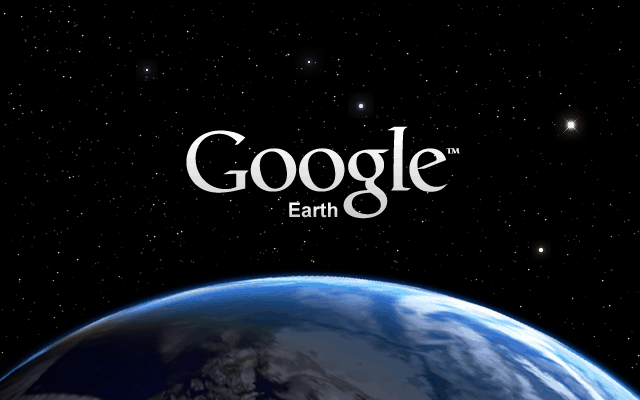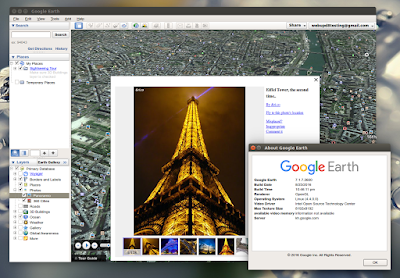
 google-earth-ec-stable for Google Earth Enterprise Client. google-earth-pro-stable for Google Earth Pro edition. Or run command to check updates and install Google Earth: sudo apt updateįor choices, you may replace google-earth-stable in command with: Finally, you can search for and install google-earth via Synaptic Package Manager after clicking Refresh. Then run command to add Google Earth for Linux repository: sudo sh -c 'echo "deb stable main" > /etc/apt//google-earth.list'ģ. Type in your password (no visual feedback due to security reason) when it asks and hit Enter.Ģ. Run command to download and install the Google keyring: wget -q -O - | sudo apt-key add. When it opens, run following commands one by one:ġ. Open terminal by pressing Ctrl+Alt+T or searching for “Terminal” from the start menu. Google Earth should now be in your launcher, and should start right up without incident.This quick tutorial is going to show you how to install the latest Google Earth in Ubuntu 17.04 Zesty Zapus by adding the Google Earth Linux repository.Īlthough you can download Google Earth, Google Earth Pro, or Google Earth Enterprise Client packages from their direct web pages, here’s how to add the single Linux repository, select install one of them, and receive automatic updates via update manager. Finally, use dpkg with the -i flag to install your new. deb package by entering the command dpkg -b. Open a terminal and use the cd command to navigate to the directory where your extracted folder from step 5 resides (e.g. Delete the line Depends: lsb-core (>=3.2), ia-32-libs. Right click the “Control” file and select “Open With gedit” (or use your preferred text editor). Now enter the following: sudo apt-get install libc6:1386 lsb-core. Open a terminal window (Ctrl-Alt-T) and enter sudo apt-get install -fix-broken deb package for the 64-bit version of Google Earth with its awareness of this dependency removed. The reason for this behavior is a dependency upon ia32-libs, which seems to be deprecated in 13.10.
google-earth-ec-stable for Google Earth Enterprise Client. google-earth-pro-stable for Google Earth Pro edition. Or run command to check updates and install Google Earth: sudo apt updateįor choices, you may replace google-earth-stable in command with: Finally, you can search for and install google-earth via Synaptic Package Manager after clicking Refresh. Then run command to add Google Earth for Linux repository: sudo sh -c 'echo "deb stable main" > /etc/apt//google-earth.list'ģ. Type in your password (no visual feedback due to security reason) when it asks and hit Enter.Ģ. Run command to download and install the Google keyring: wget -q -O - | sudo apt-key add. When it opens, run following commands one by one:ġ. Open terminal by pressing Ctrl+Alt+T or searching for “Terminal” from the start menu. Google Earth should now be in your launcher, and should start right up without incident.This quick tutorial is going to show you how to install the latest Google Earth in Ubuntu 17.04 Zesty Zapus by adding the Google Earth Linux repository.Īlthough you can download Google Earth, Google Earth Pro, or Google Earth Enterprise Client packages from their direct web pages, here’s how to add the single Linux repository, select install one of them, and receive automatic updates via update manager. Finally, use dpkg with the -i flag to install your new. deb package by entering the command dpkg -b. Open a terminal and use the cd command to navigate to the directory where your extracted folder from step 5 resides (e.g. Delete the line Depends: lsb-core (>=3.2), ia-32-libs. Right click the “Control” file and select “Open With gedit” (or use your preferred text editor). Now enter the following: sudo apt-get install libc6:1386 lsb-core. Open a terminal window (Ctrl-Alt-T) and enter sudo apt-get install -fix-broken deb package for the 64-bit version of Google Earth with its awareness of this dependency removed. The reason for this behavior is a dependency upon ia32-libs, which seems to be deprecated in 13.10. 
Clicking the icon results in nothing, though, and running google-earth from the terminal results in an error like “./googleearth-bin: error while loading shared libraries: libGLU.so.1”. The 64-bit version refuses to even attempt an install, while the 32-bit will make it in with a little effort.

deb variants available for download, but they seemingly inexplicably don’t work once installed, assuming they install at all. Google has packages for Google Earth in 32- and 64-bit. Credit for this solution goes to an excellent forum post by scouser73 on Ubuntu Forums, which was in turn adapted from instructions by mc4man.







 0 kommentar(er)
0 kommentar(er)
